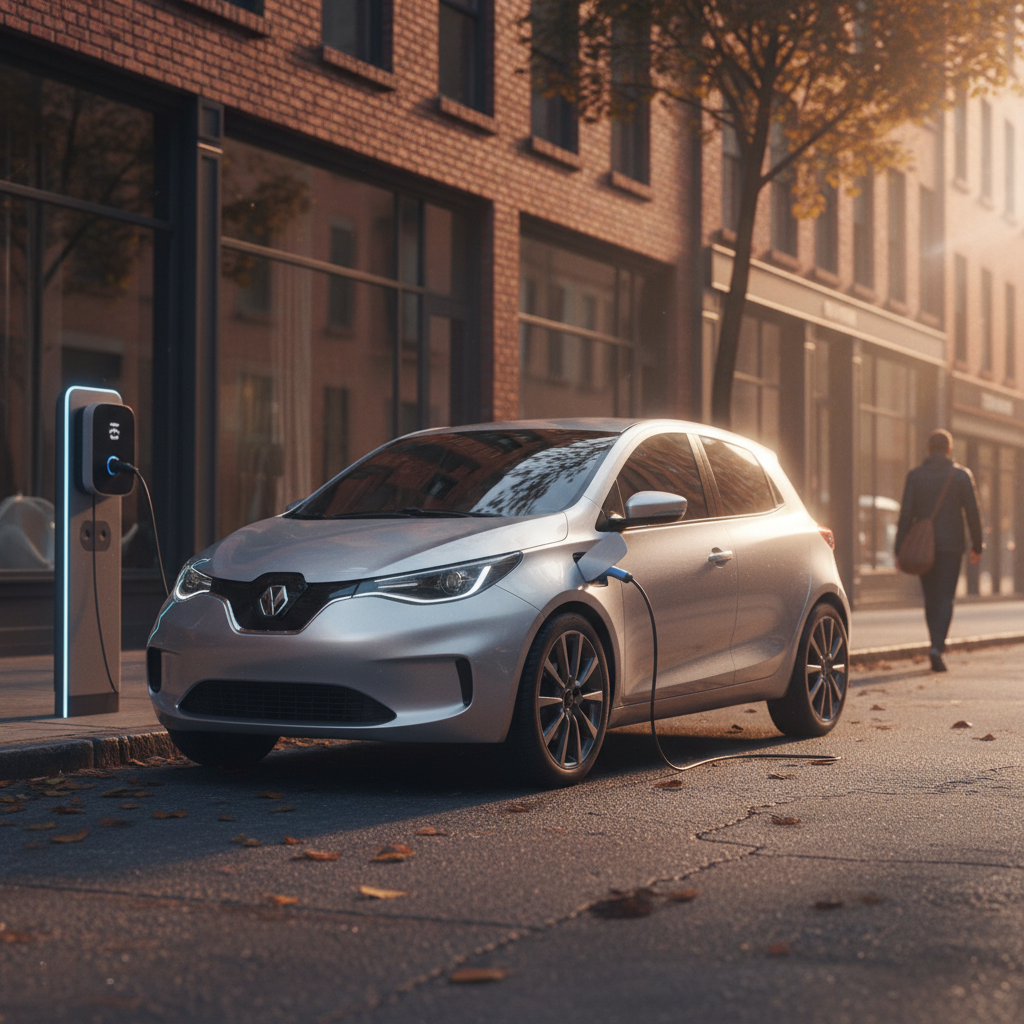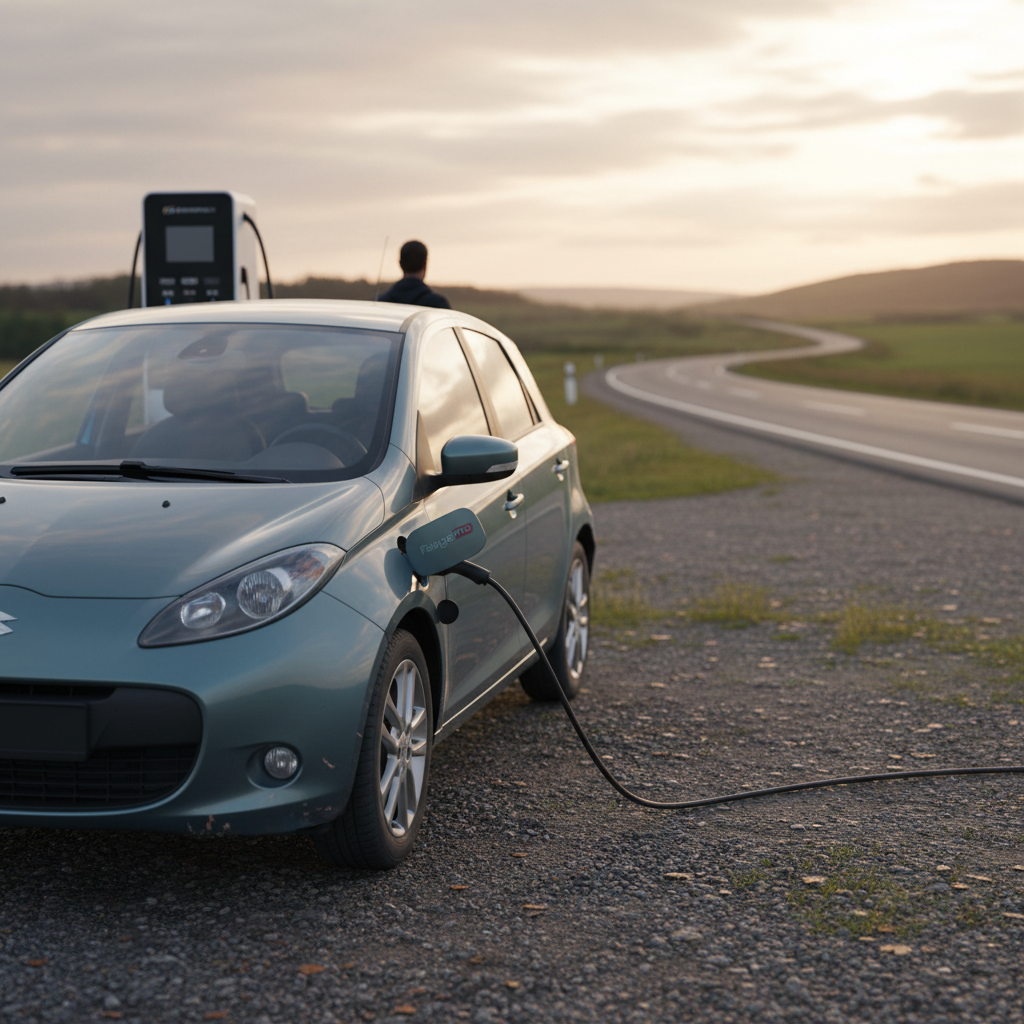Type “electric vehicle servicing near me” into a map app and you’ll see a messy mix of tire shops, gas-car garages, dealerships, and the occasional specialist. Some of them understand high-voltage battery packs. Some of them barely understand Bluetooth. In 2025, EVs really do need less maintenance than gas cars, but the maintenance they do need is more specialized, and choosing the wrong shop can get expensive fast.
Good news for EV owners
Why “electric vehicle servicing near me” feels confusing
With gas cars, the playbook is simple: oil change every few thousand miles, big service at 30,000–60,000 miles, repeat until something expensive breaks. With EVs, the story is flipped. The drivetrain is incredibly simple, software is doing half the work, and the single most valuable component, the battery, is sealed in a skateboard under your feet. That makes traditional “service menus” feel strangely vague when you start searching for EV servicing near you.
- Fewer moving parts means fewer routine failures, but more reliance on software and sensors.
- Most independent shops are still geared toward internal-combustion work (oil, belts, exhaust).
- Dealerships vary wildly in EV expertise, even within the same brand.
- Battery health, something gas drivers never had to think about, is now central to resale value.
The real risk
What “servicing” an electric vehicle actually means
Let’s demystify this. When you look for EV service near me, you’re not looking for someone to change oil that doesn’t exist. You’re looking for three things: basic wear-and-tear checks, high-voltage system health, and software/diagnostics.
The three pillars of EV servicing
If a shop can’t talk clearly about these, keep scrolling.
1. Chassis & tires
Your EV is heavy and torque-rich. That’s murder on tires and suspension if you ignore it.
- Tire rotation and alignment
- Suspension & bushing checks
- Brake inspection for corrosion, not just wear
2. Battery & thermal
The battery pack is the heart (and half the value) of the car.
- Battery health reports & error codes
- Coolant level & leak checks
- High-voltage safety inspection
3. Software & electronics
Modern EVs are rolling smartphones with wheels.
- Diagnostics for warning lights
- Firmware & module updates (when available)
- Sensor & charging-port checks
Ask this on the phone

How often should you service an EV? Realistic intervals
If you’re coming from a gas car, EV service intervals feel almost suspiciously relaxed. There’s no 5,000-mile oil-change treadmill. Instead, think in terms of annual checkups and mileage-based tire and brake care.
Typical EV service rhythm (for most daily drivers)
Always check your owner’s manual, but this is a realistic baseline for modern EVs.
| Interval | What to check | Why it matters |
|---|---|---|
| Every 6–8k miles | Tire rotation & pressure check | EVs are heavy; rotation prevents premature, uneven wear. |
| Once a year | General inspection, cabin air filter, software & diagnostic scan | Catches small issues before they become big ones; keeps HVAC efficient. |
| Every 2–3 years | Brake fluid check/flush (if recommended), alignment check | Prevents corrosion, maintains pedal feel, protects expensive ABS parts. |
| Every 5–7 years | Coolant for battery/motor/inverter (if applicable) | Some EVs specify coolant intervals, ignore it and you risk the battery. |
| Before long road trips | Tire tread depth, 12V battery health, charging port inspection | Nothing kills a road trip vibe like a dead 12V or flaky charge port. |
Use this as a conversation starter with any service center you call.
A simpler calendar
EV maintenance costs vs gas cars in 2025
This is where EVs quietly shine. You’re not paying someone to drain dead dinosaurs out of your crankcase four times a year. Several 2025 cost-of-ownership studies put EV maintenance 30–50% cheaper than comparable gas cars over the first years of ownership, mostly because there’s simply less to break.
What owners actually spend
Yes, individual EV repairs can be pricey if they involve the battery or power electronics, but those events are rare compared with the constant drumbeat of small gas-car services. The real art is catching issues early, before they turn into a $2,000 surprise instead of a $200 appointment.
Where to service an EV near you (and who to avoid)
Right now, EV servicing is split between four main players: franchised dealers, brand-specific service centers (like Tesla), independent EV specialists, and traditional repair shops that are trying to catch up. Each has strengths, and red flags.
Dealers & brand service centers
- Pros: Factory training, access to OEM parts and software, recalls handled properly.
- Cons: Can be expensive, EV expertise varies wildly, especially at mixed gas/EV stores.
- Best for: Warranty work, recalls, complex high-voltage issues.
Independent EV specialists
- Pros: Often run by true believers who only work on EVs; great for diagnostics and out-of-warranty cars.
- Cons: Harder to find in smaller markets; may not handle every brand.
- Best for: Used EVs, out-of-warranty maintenance, honest second opinions.
- For basic tire, alignment and suspension work, a high-quality general shop is usually fine, electricity hasn’t changed how rubber meets asphalt.
- For anything involving high-voltage, rapid range loss, or repeated charging errors, you want a dealer or true EV specialist.
- If a shop’s website doesn’t mention EVs at all, they’re telling you who their real customers are.
Do not DIY high‑voltage
Battery health checks: the new “oil change”
In a used EV, the battery pack is the whole ballgame. Two cars can look identical on the lot; one quietly has 95% of its original capacity, the other is limping along at 75%. Same paint, same leather, radically different road-trip reality, and resale value.
A proper battery health check is more than glancing at the on-screen range estimate. It usually involves pulling data from the battery management system: usable capacity, imbalance between modules, charge history, and any stored fault codes. Think of it as the EV equivalent of a compression test on a gas engine, just without the smell of fuel.
What a good battery report includes
Every EV Recharged sells comes with a Recharged Score Report that includes verified battery health diagnostics, not just a guess based on range. That’s the kind of information you should demand from any seller or shop when you’re evaluating a used EV, whether you buy from us or not.
Servicing a used EV before you buy
Shopping used is where “electric vehicle servicing near me” turns from a chore into cheap insurance. A thoughtful pre‑purchase inspection on a used EV answers three questions: Is the battery healthy, has the car been crashed or abused, and are any big bills lurking just offstage?
The three-part used EV inspection
Don’t hand over money without answers to these.
1. Battery & charging
- State of health and capacity report
- DC fast‑charging history (when available)
- Charge port and onboard charger diagnostics
2. Structure & suspension
- Undercarriage inspection (battery case, rust, impacts)
- Alignment and tire wear patterns
- Suspension noises and play
3. Software & history
- Fault codes and warning lights
- Recall and campaign status
- Service records and warranty coverage remaining
At Recharged, this is baked into the process: every vehicle gets a Recharged Score with battery diagnostics, a fair‑market price analysis, and EV‑specialist review before it ever hits the site. If you’re buying elsewhere, Craigslist, marketplace, another dealer, pay an EV‑savvy shop to do something similar. It’s the cheapest peace of mind you can buy in a transaction measured in tens of thousands of dollars.

What to do in an EV emergency or breakdown
Even with bulletproof drivetrains, life still happens: curb strikes, blown tires, software gremlins, or that classic “I thought there was one more charging stop” miscalculation. When things go sideways, EVs have a few quirks you should know about.
- Flat or damaged tire: Many EVs skip the spare to save weight. Know whether you’ve got a repair kit, run‑flats, or nothing at all. A mobile tire service is often faster than a tow.
- High‑voltage warning or turtle mode: Don’t keep driving “to see if it clears.” Safely pull over and call roadside assistance; pushing a sick pack is a good way to make an expensive problem larger.
- Out of charge: Most roadside providers now offer flatbed tows to the nearest charger or dealer; a few markets even have mobile Level 2 or DC fast-charging trucks. Ask your provider what they offer for EVs before you need it.
- Collision: If there’s underbody damage or the car took a hit near the battery, insist it goes to a shop that actually understands EV structural repairs, not the cheapest body shop on the insurer’s list.
One more thing about towing
Checklist: how to choose the right EV service center
Before you follow that map pin to the nearest “EV‑friendly” garage, vet them. A five‑minute phone call today beats a five‑figure invoice tomorrow.
10 questions to ask before you book
1. Do you regularly work on my make and model?
General “we see some EVs” isn’t enough. You want them to recognize your car without Googling it while you’re on hold.
2. Are your technicians trained for high‑voltage systems?
Look for manufacturer training, EV‑specific certifications, or proof they invest in HV safety gear and procedures.
3. What EV diagnostic tools do you use?
If they can’t name the scan tools or software they use, they’re probably not doing deep diagnostics.
4. Can you provide a written battery health or diagnostic report?
You want something you can keep with the car’s records, especially important if you ever sell the vehicle.
5. Do you follow the manufacturer’s EV service schedule?
Shops that make up their own “EV service packages” full of unneeded work are just reinventing the oil‑change upsell.
6. How do you handle recalls or software updates?
Some updates are dealer‑only; a good independent shop will be honest about what they can and can’t do.
7. What’s your policy on aftermarket wheels, suspension or tuning?
If the previous owner modified the car, you want a shop that understands how that affects range and wear.
8. Do you offer loaner cars or pickup/delivery?
Not essential, but a strong signal they take EV customers seriously, especially if you rely on your car daily.
9. Can I see a sample invoice for a typical EV service?
A transparent shop won’t flinch at showing how they bill for inspection vs. actual repair work.
10. How do you communicate during the repair?
Text updates with photos and videos beat mysterious voicemails and surprise charges every time.
FAQ: Electric vehicle servicing near me
Frequently asked questions about EV servicing
Bottom line: EV servicing is simpler, but not optional
If you’re hunting for electric vehicle servicing near me, the real goal isn’t just proximity. It’s competence. EVs have fewer things to service but higher stakes when something goes wrong, especially around the battery and high‑voltage systems. A good EV shop will talk clearly about tires, suspension, cooling and battery health, not try to sell you an imaginary “EV oil change.”
Treat annual inspections and periodic battery health checks as part of the cost of owning an electric car, the same way you budget for charging. If you’re stepping into the used EV market, demand real data on pack health, not just a glossy listing photo. Recharged was built to make exactly that process simpler: verified battery diagnostics through the Recharged Score, transparent pricing, EV‑savvy support, and even financing, trade‑ins and nationwide delivery. Wherever you end up buying and servicing your EV, insist on shops and sellers who treat the car like what it is, a high‑tech machine that rewards the owners who care enough to look under the skin, not just at the paint.



